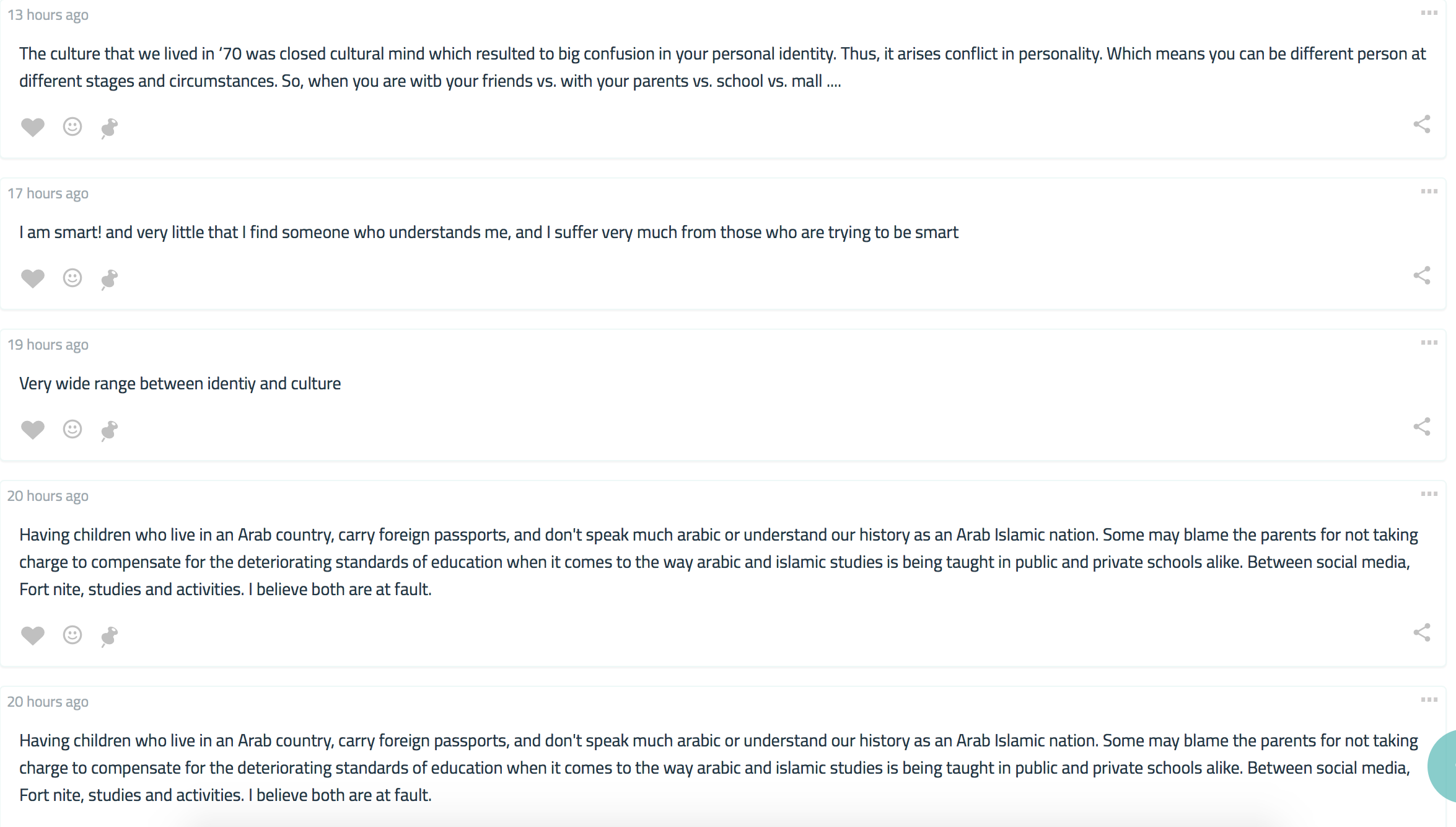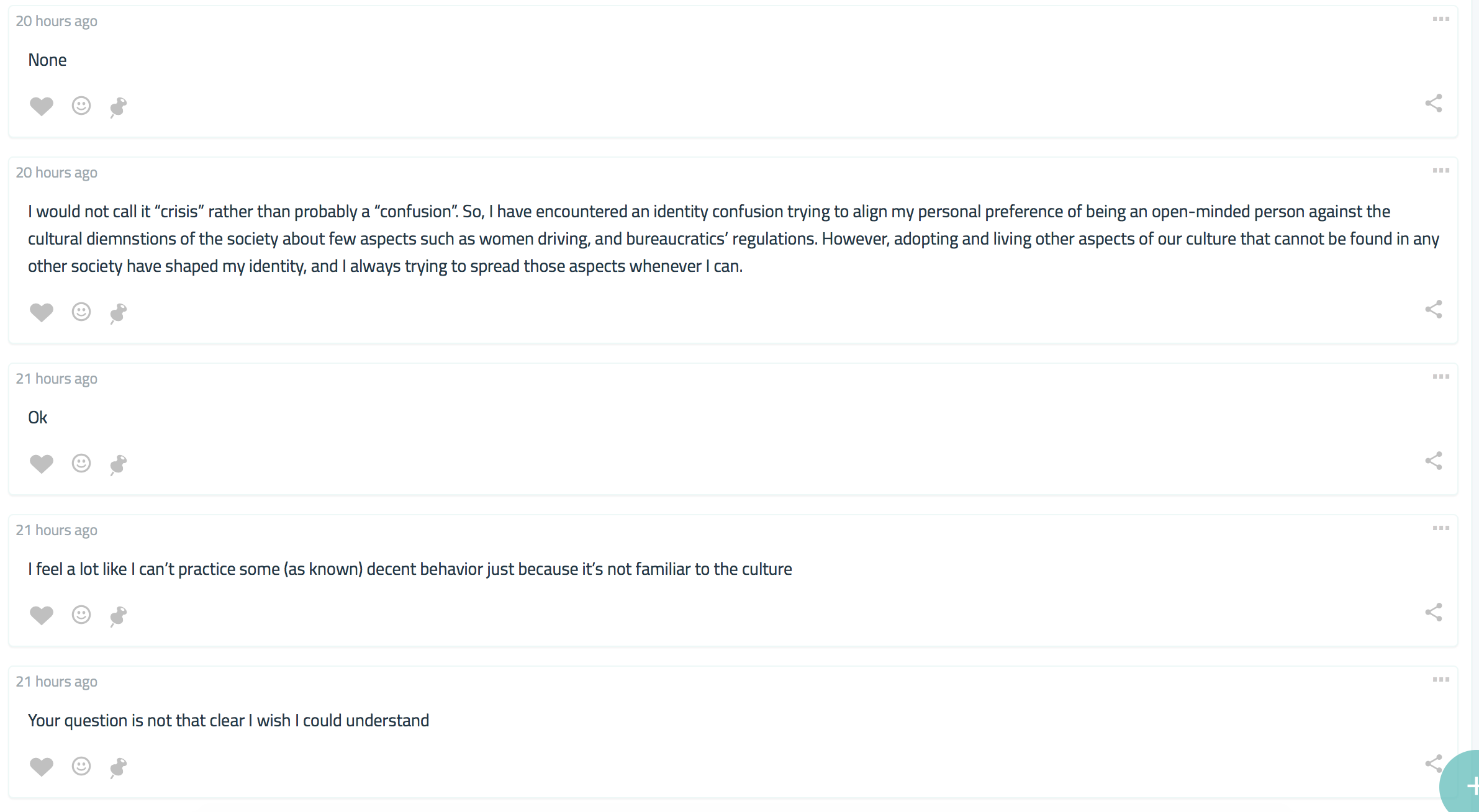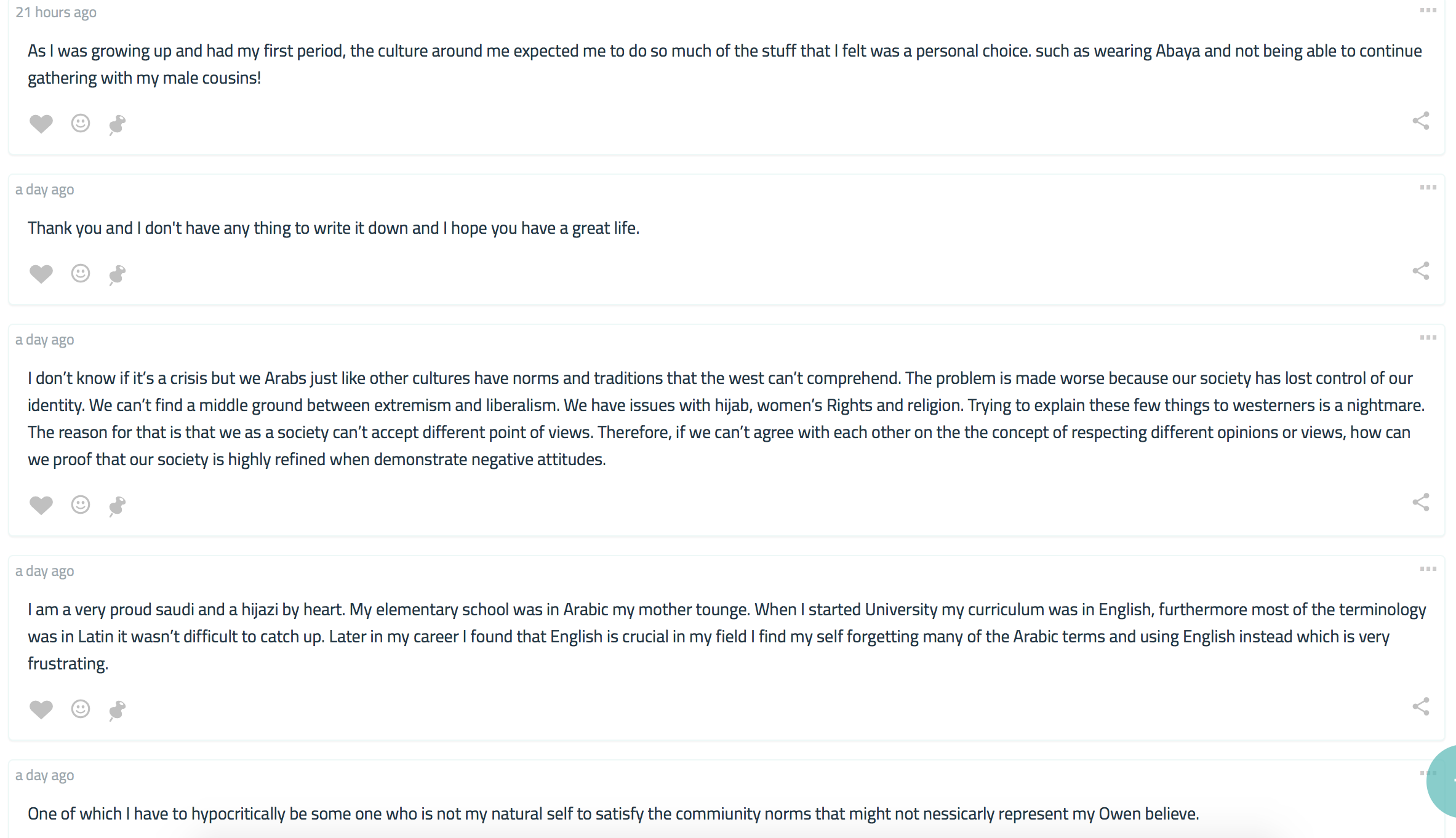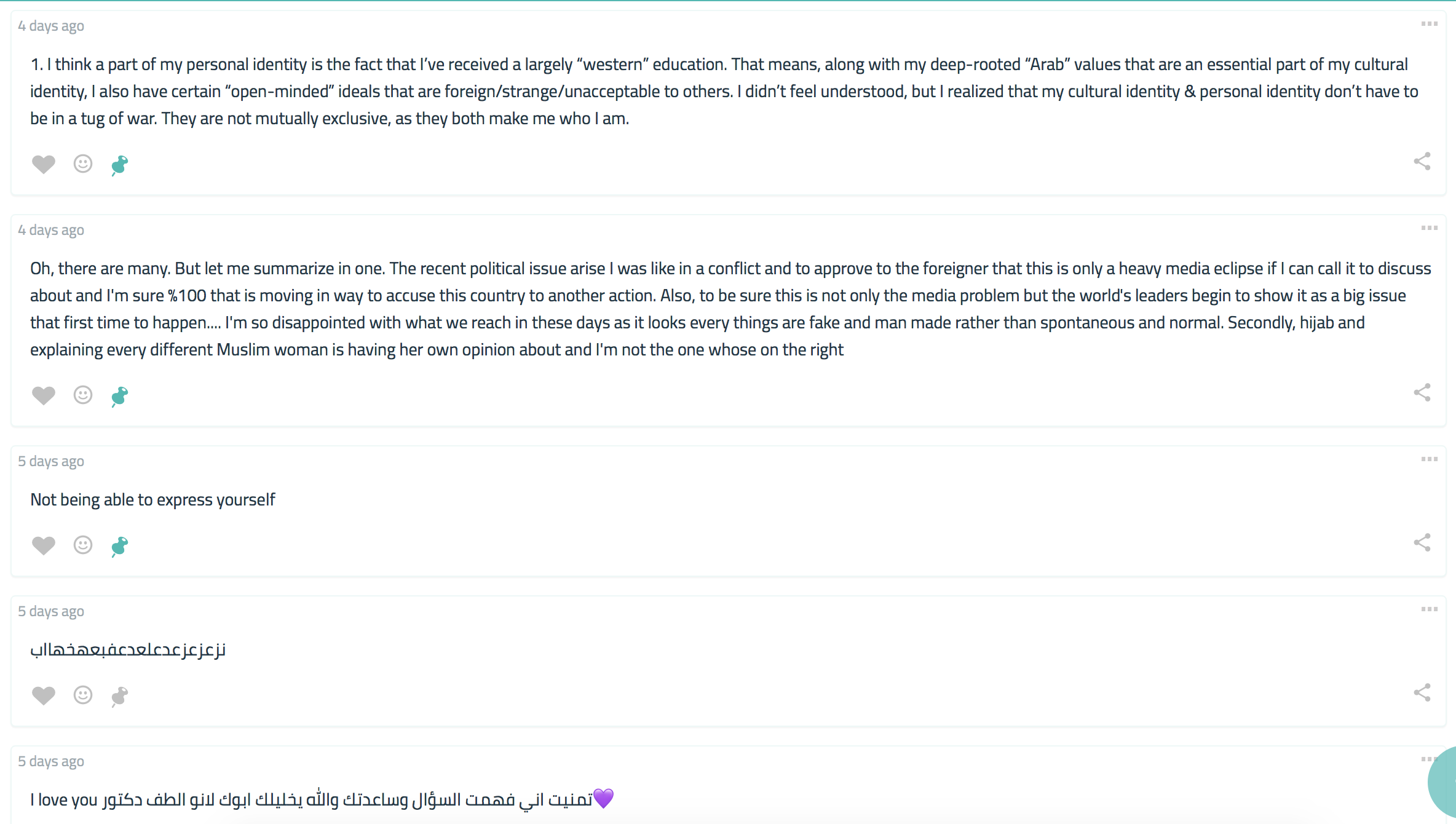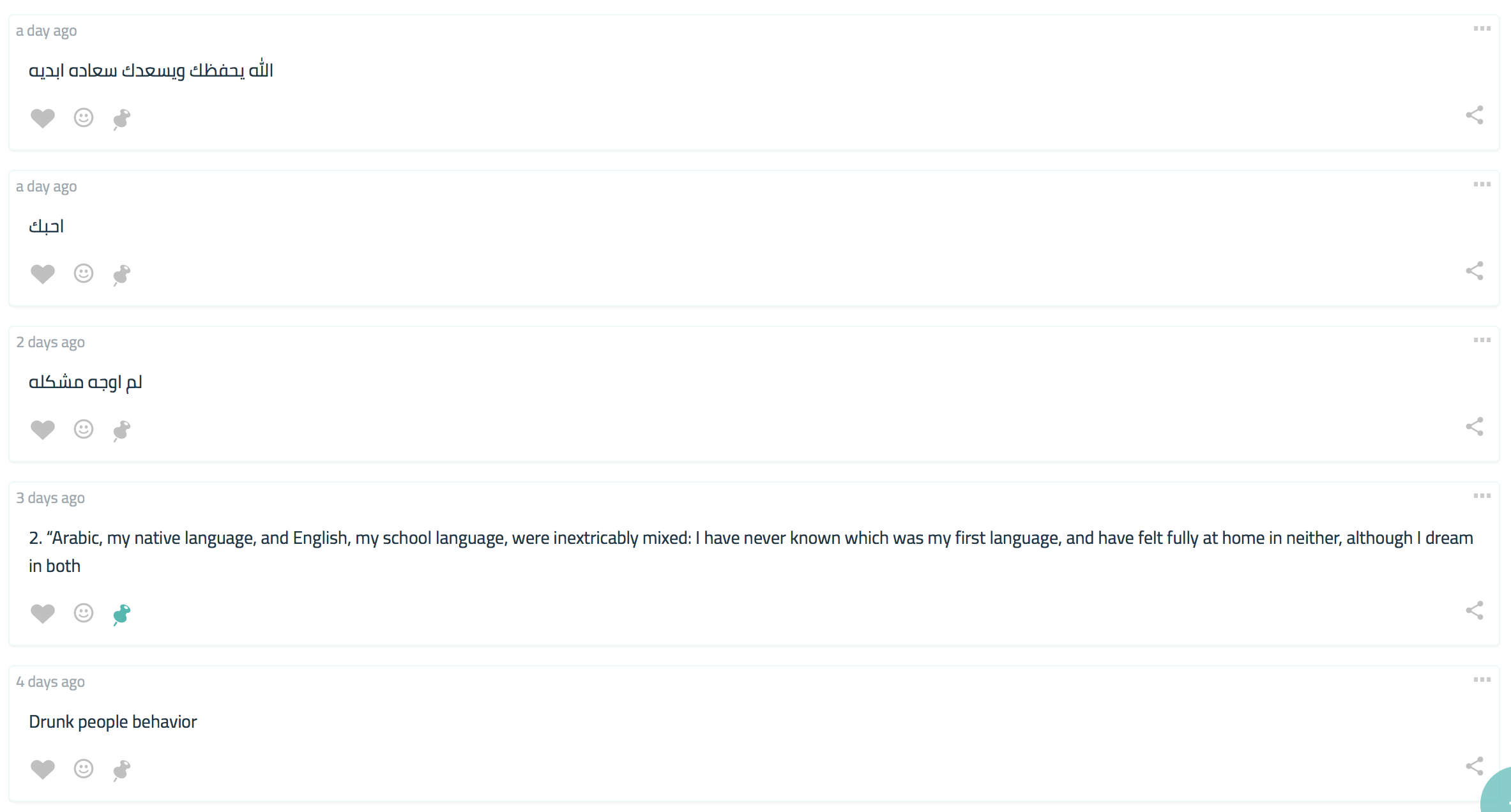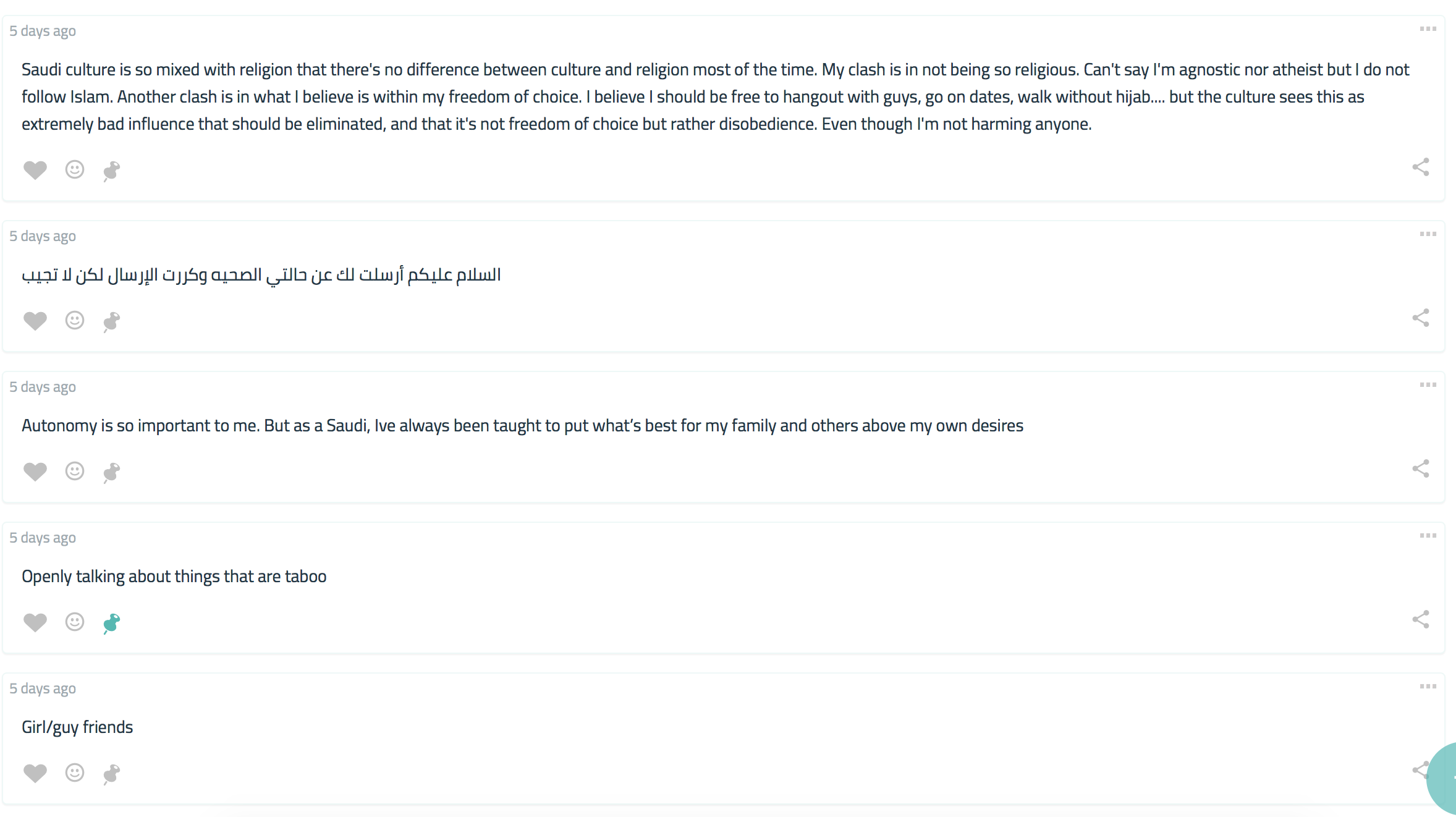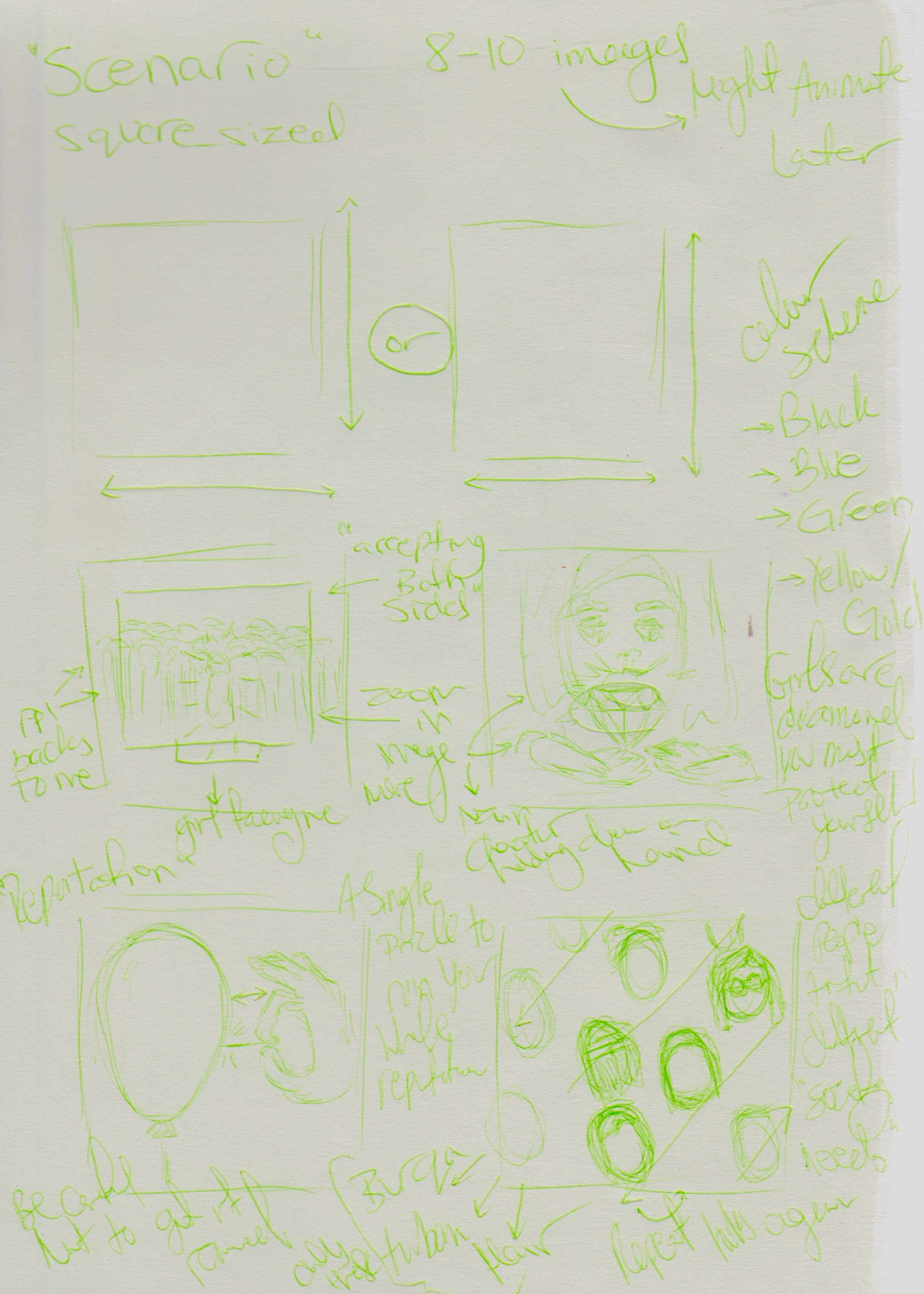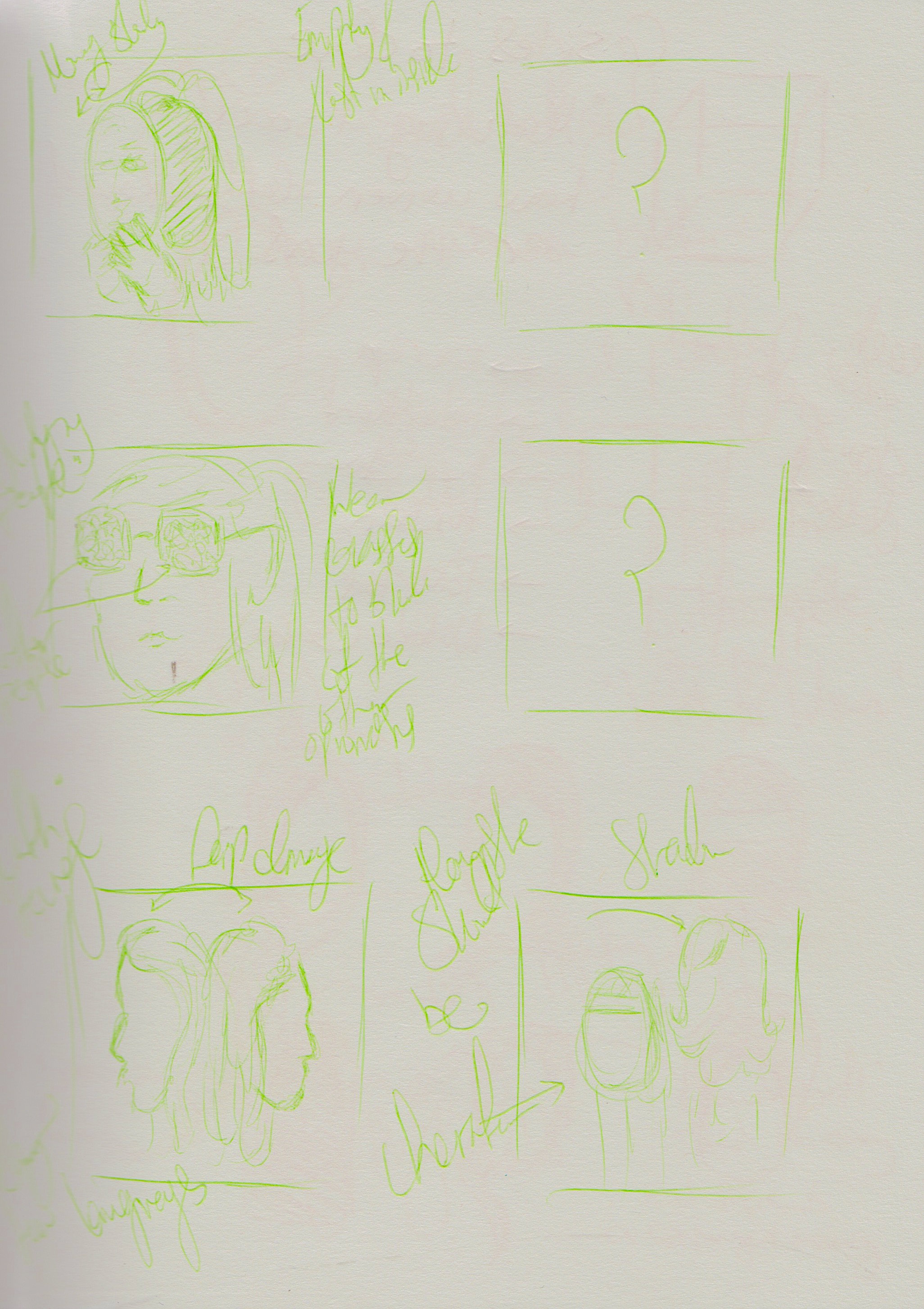After sending out my link, I gave myself a week to get some replies. I hoped I would get more, however at this stage of research, it more on quality rather than quantity.
Some of the replies I got, weren’t as useful as I thought. Thus I have chosen a selection of useful ones, ones I can relate to myself.
“Along with my deep-rooted “Arab” values that are an essential part of my cultural identity, I also have certain “open-minded” ideals that are foreign/strange/unacceptable to others.”
“ … I didn’t feel understood, but I realized that my cultural identity & personal identity don’t have to be in a tug of war. They are not mutually exclusive, as they both make me who I am.”
“… Hypocritically be some one who is not my natural self to satisfy the community norms…”
“… Arabs just like other cultures have norms and traditions that the west can’t comprehend … We can’t find a middle ground between extremism and liberalism. We have issues with hijab, women’s Rights and religion. …. society can’t accept different point of views. Therefore, if we can’t agree with each other on the the concept of respecting different opinions or views, how can we proof that our society is highly refined when demonstrate negative attitudes. “
“The culture that we lived in ‘70 was closed cultural mind which resulted to big confusion in your personal identity. Thus, it arises conflict in personality… you can be different person at different stages and circumstances.”
The recurring sub themes I found were:
Expressing yourself - having the freedom to do what I please
Setting your own rules - not judging or being judged by other opinions
Mother tongue - taught two languages at the same time, never felt fully at home, as years passed English was used more, hence forgetting Arabic terms
Culture expectation and norms - needing to fulfil the role, even if it means losing your own identity
Ethnicity
After analysing the results and understanding what they are trying to say, there isn’t a fight within ourselves, as these two parts makes us who we are. Instead of changing who we are for society, it should be accepting us, with no criticism.

